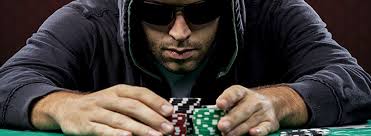What Happens If Everyone Checks in Poker?
In poker, checking means passing up the opportunity to bet when you are on your turn. You have three options when you are on your turn: raising, calling, or checking. If everyone checks, the round ends without any betting, and you must wait until the next betting round. Checking is one of the most common forms of poker action, but it can have very specific consequences.
When a player checks, he’s usually holding a weak hand. He might check because he thinks that someone else is bluffering. Checking before the flop, when action is on the other player, can be very dangerous. However, if it is a monster hand, it could set the trap for a bluffer.
A player’s turn in Lowball passes to the left of him. If he has a high card, he may be able to discard his four cards if his hand is higher than his opponent’s. If not, the player must show his hand. Otherwise, he can muck his hand.
If your opponent checks, it’s best to raise. This strategy can increase your odds of winning by making it easy for your opponent to fold a bad hand. It’s a great strategy for small pots and when you’re confident that you have a decent hand. However, it’s not a good idea to raise when everyone else isn’t betting.
If you bluff with a raise, you’ll have a greater effect on other players. On the flip side, if everyone checks, you’ll probably have a weak hand. In this case, check your position and bet if you’re confident in your hand. If everyone checks, it means you have a weak hand that’s weaker than your opponent’s.
Often, players can’t decide when to show their cards. Even experienced poker players are unsure of this. Most players will try not to show their cards unnecessarily. It’s best to check first if you’re the small blind. After you’ve checked, you can also fold your face down if you’re beaten.
When players check, they’re usually trying to build a pot. This strategy can discourage players from stealing pots. It can also increase the pot size. Check-raises are a great way to intimidate opponents by showing strength. They can be a great tool for bluffing opponents or getting more money into a pot when you have a good hand.
The checkback rule was introduced in poker to discourage soft play and collusion between players. Soft play can have a major impact on the game, and the checkback rule prevents this. Soft play can affect every player in a tournament, and you should avoid soft play at all costs.
Split pots are another common scenario in poker. In this type of game, the player with the highest hand wins half of the pot. The player with the lowest hand takes the other half of the pot.




